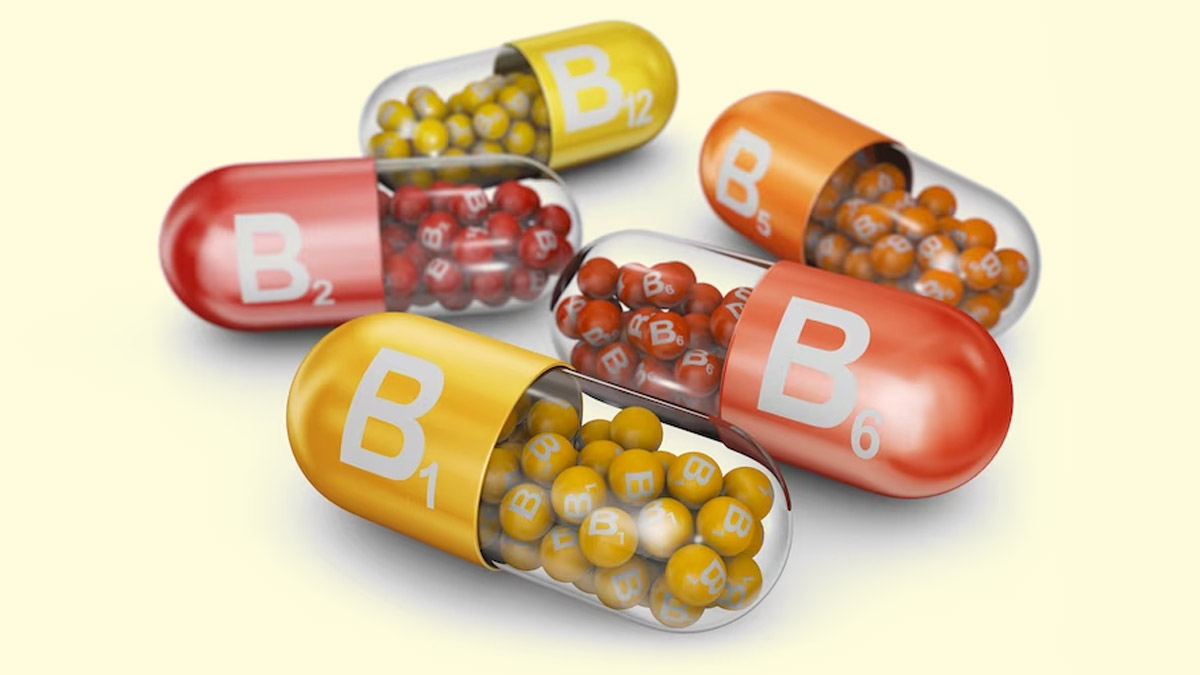
B vitamins are a group of eight essential water-soluble vitamins that play a vital role in various bodily functions. These vitamins are involved in a wide range of processes, including energy production, brain function, DNA synthesis, and cell metabolism. B vitamins are also crucial for maintaining good health, as they help the body convert food into energy, support the immune system, and regulate mood and metabolism.
Table of Content:-
Role Of B Vitamins In Human Body
1. Energy Production
B1 (thiamine) is essential for energy production and the proper functioning of the heart, muscles, and nervous system. It is also involved in the metabolism of carbohydrates.
2. Enhances Metabolism
B2 (riboflavin) plays a role in energy production and the metabolism of carbohydrates, fats, and proteins. It also helps maintain healthy skin, eyes, and nervous system.

Also read: 5 Reasons Why You Must Change Your Pillow Covers Every Week
3. Proper Functioning of Nervous System
B3 (niacin) is involved in energy production, DNA synthesis, and the functioning of the nervous system. It also helps maintain healthy skin, nerves, and digestive system.
4. Production of RBCs
B5 (pantothenic acid) plays a role in energy production, hormone synthesis, and the production of red blood cells.
5. Better Immune System
B6 (pyridoxine) is involved in protein metabolism, red blood cell production, and the functioning of the nervous and immune systems. It also helps in the production of hormones and neurotransmitters, such as serotonin and norepinephrine.
6. Healthy Skin, Hair, and Nails
B7 (biotin) plays a role in energy production, fat metabolism, and the synthesis of fatty acids and glucose. It is also involved in the maintenance of healthy skin, hair, and nails.

Also read: 5 Reasons Why You Must Change Your Pillow Covers Every Week
7. DNA Synthesis
B9 (folic acid) is essential for DNA synthesis, cell division, and the production of red blood cells. It is also involved in the regulation of homocysteine levels, which is a risk factor for heart disease.
8. Metabolism of Homocysteine
B12 (cobalamin) is involved in the production of red blood cells, DNA synthesis, and the functioning of the nervous system. It also helps maintain a healthy immune system and is essential for the metabolism of homocysteine.
B vitamins are commonly found in a variety of foods, including animal products, such as meat, fish, poultry, and dairy, as well as leafy greens, legumes, and whole grains. They are often added to fortified foods, such as cereals, breads, and energy bars, to help people meet their daily needs.
Despite the widespread availability of B vitamins, some people may still be at risk of deficiencies, including those with poor diets, elderly individuals, vegetarians and vegans, and people with certain health conditions, such as alcoholism, Crohn's disease, and celiac disease. A deficiency in B vitamins can lead to a range of health problems, including anaemia, fatigue, nerve damage, and mood swings.
In conclusion, B vitamins play a crucial role in maintaining good health, and a deficiency in these essential vitamins can lead to a range of health problems. To ensure you are getting enough B vitamins, it is important to eat a balanced diet that includes a variety of foods, such as animal products, leafy greens, legumes, and whole grains. If you are at risk of a deficiency, you may also want to consider taking a B-complex vitamin supplement to help meet your daily needs.
Also watch this video
How we keep this article up to date:
We work with experts and keep a close eye on the latest in health and wellness. Whenever there is a new research or helpful information, we update our articles with accurate and useful advice.
Current Version